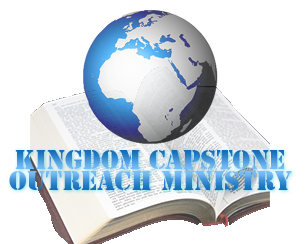You are here
THE PROPHETIC MINISTRY (3)
“Before I formed you in the womb I knew you; Before you were born I sanctified you; I ordained you a PROPHET to the nations” – Jeremiah 1:5
The PROPHETIC MINISTRY is prime in God’s Agenda: “Before I formed you in the womb I knew you; Before you were born I sanctified you; I ordained you a PROPHET to the nations” (Jer.1:5). Jeremiah’s narrative confirms that prophets are drafted into ministry by the sovereign Will of Christ alone. No one can call another into the office of a prophet; and this is true of other governmental ascension gifts (Eph.4:11). All five ministry gifts are equally important, come from the same Source, but are unique in operations, and distinct in the value they add to the Believer and God’s Kingdom. The prophetic ministry is quintessentially different from the other ministry gifts.
Prophets are chosen voices that God sets apart to speak on His behalf. Like apostles they are sent ones, sent to speak the revealed will of Christ. Prophets know their purpose and ministry role, and are acutely aware that their ministries could be different and distinct. As seen in Jeremiah’s call, the prophetic could be divinely raised for multi-faceted purposes: To root out, pull down, destroy, and throw down all spiritual opposition that gets in the way of God’s plans and purpose; and to build and plant, after the spiritual demolition and clearing exercise (v.10).
The prophetic comes with a great sense of spiritual authority; hence, down the ages, prophets have often been misunderstood. They are not always the most charismatic of the five-fold ascension gifts. They can occasionally be abrupt, direct, or even a bit brash, will not tolerate religious games, and may view church politics as offensive and unproductive. Oftentimes they are more concerned with “what says the Spirit of God” regarding events than anything else. At other times they appear driven by the Holy Spirit and carry an intense sense of urgency in spirit. Sensing a contradiction to God’s Purpose, prophets can ignore public opinion even when it would be more palatable for their message.
Most people are unfamiliar with the prophetic, some qualities of which may produce discomfort. Yet, there are other traits that simply cannot be avoided. Learning about prophetic grace will make the ministry better comprehended, and become more accepted and embraced. Because of the spiritual realm prophets walk in, just the very nature of the gift can appear confrontational when it’s at all. To benefit from the prophetic calling demands understanding the ministry, gift, roles, equipment and operations.
The prophetic often comes alive in times of spiritual conflict, when the spiritual climate is hard, or things are chaotic in the Spirit. Prophets are “stewards of the mysteries of grace” (Eph.3: 4-5). Tuned into the spirit realm, they focus on listening to the Holy Spirit, craving to receive revelation of the Mind of Christ. Pastors may take the flock’s needs to God in prayer, prophets take His Word to the people (vv.2, 4, 11-12).
Adetokunbo O. Ilesanmi (Meditations)
- Log in to post comments
Latest Tweets
No tweets to display now.
Our Vision
The vision of KCOM is that:
"the earth shall be filled with the knowledge of the Glory of the Lord as the waters cover the seas" (Habakkuk 2:14).
"But we all, with open face beholding as in a glass the Glory of the Lord, are changed into the same image from glory to glory even as by the Spirit of the Lord" (2 Corinthians 3:18).
Copyright © 2013–2026 Kingdom Capstone Outreach Ministry. | Designed by ZoeWox Technologies
